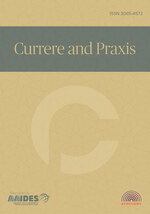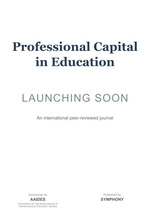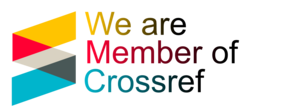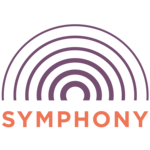Green and/or digital transition in music education? Analysis of European policy papers and competence frameworks
DOI:
https://doi.org/10.70116/29802741100Keywords:
Comparative document analysis, digitalization, sustainability, music education, European UnionAbstract
This article critically analyzes the interplay of digitalization and sustainability in European policy papers and competence frameworks, with a focus on implications for music education. Drawing on a comparative document analysis of key frameworks such as DigComp 2.2 and GreenComp, as well as policy documents like the European Green Deal and the Digital Education Action Plan, we uncover a significant gap between high-level ambitions for “twin transitions” and their practical integration in educational contexts. The competence frameworks show minimal links to music and struggle to address contradictions, such as the environmental costs of digital technologies versus their proposed benefits. By exploring sustainable practices like low-tech music-making and ethical AI use, this analysis calls for a curriculum that critically aligns music education with broader sustainability and digitalization goals, positioning it as a transformative force in addressing climate challenges.
Downloads
References
Barrett, M. S., & Westerlund, H. M. (2023). Music education, ecopolitical professionalism, and public pedagogy: Towards systems transformation. Springer International Publishing. https://doi.org/10.1007/978-3-031-45893-4 DOI: https://doi.org/10.1007/978-3-031-45893-4
Bates, V. C. (2024). Sustainable futures and school music. In J. Aróstegui, C. Christophersen, J. Nichols, & K. Matsunobu (Eds.), The Sage handbook of school music education (pp. 52–66). Sage Publications Ltd. https://doi.org/10.4135/9781529674842.n5 DOI: https://doi.org/10.4135/9781529674842.n5
Bianchi, G., Pisiotis, U., & Cabrera, G. M. (2022, January 13). GreenComp: The European sustainability competence framework. JRC Publications Repository. https://doi.org/10.2760/13286
Bohnsack, R. (2021). Rekonstruktive Sozialforschung: Einführung in qualitative Methoden (10th ed.). utb GmbH. https://doi.org/10.36198/9783838587851 DOI: https://doi.org/10.36198/9783838587851
Bowen, G. A. (2009). Document analysis as a qualitative research method. Qualitative Research Journal, 9(2), 27–40. https://doi.org/10.3316/QRJ0902027 DOI: https://doi.org/10.3316/QRJ0902027
Buchborn, T., Burnard, P., Hebert, D. G., & Moore, G. (2022). Reconfiguring music education for future-making: How? Music Education Research, 24(3), 275–281. https://doi.org/10.1080/14613808.2022.2076821 DOI: https://doi.org/10.1080/14613808.2022.2076821
Buchborn, T., & Treß, J. (2023). Acting self-determinedly and critically in a post-digital future? A critical review on digitalisation in music education. https://doi.org/10.5281/ZENODO.8010504 DOI: https://doi.org/10.70116/298027415
Carretero, S., Vuorikari, R., & Punie, Y. (2017). DigComp 2.1: The digital competence framework for citizens with eight proficiency levels and examples of use. European Commission, Publications Office. https://doi.org/10.2760/38842
Cheng, L. (2025). The impact of generative AI on school music education: Challenges and recommendations. Arts Education Policy Review, 1–8. https://doi.org/10.1080/10632913.2025.2451373 DOI: https://doi.org/10.1080/10632913.2025.2451373
Christophersen, C., Aróstegui, J. L., Holdhus, K., Kenny, A., Knudsen, J. S., Lindgren, M., Väkevä, L., & Viig, T. G. (2023). Music teacher education for the future: Reflections on change. Action, Criticism, and Theory for Music Education, 22(3), 7–40. https://doi.org/10.22176/act22.3.7 DOI: https://doi.org/10.22176/act22.3.7
Clements, A. (2018). A postdigital future for music education: Definitions, implications, and questions. Action, Criticism, and Theory for Music Education, 17(1), 48–80. https://doi.org/10.22176/act17.1.48 DOI: https://doi.org/10.22176/act17.1.48
Council of the European Union. (2019). A new strategic agenda for the EU 2019–2024. https://www.consilium.europa.eu/media/39914/a-new-strategic-agenda-2019-2024.pdf
Council of the European Union. (2021, February 26). Council resolution on a strategic framework for European cooperation in education and training towards the European Education Area and beyond (2021–2030) (2021/C 66/01). https://eur-lex.europa.eu/legal-content/EN/TXT/?uri=CELEX:32021G0226(01)
Council of the European Union. (2022). Council recommendation of 16 June 2022 on learning for the green transition and sustainable development (2022/C 243/01). https://eur-lex.europa.eu/legal-content/EN/TXT/PDF/?uri=CELEX:32022H0627(01)
European Commission. (2019, December 11). The European Green Deal (COM/2019/640 final). https://eur-lex.europa.eu/resource.html?uri=cellar:b828d165-1c22-11ea-8c1f-01aa75ed71a1.0002.02/DOC_1&format=PDF
European Commission. (2020a). Digital education action plan. https://education.ec.europa.eu/sites/default/files/document-library-docs/deap-communication-sept2020_en.pdf
European Commission. (2020b). Shaping Europe’s digital future. https://eur-lex.europa.eu/legal-content/EN/TXT/PDF/?uri=CELEX:52020DC0067
Eusterbrock, L. (2022). Climate-conscious popular music education: Theory and practice. Journal of Popular Music Education, 6(3), 385–401. https://doi.org/10.1386/jpme_00098_1 DOI: https://doi.org/10.1386/jpme_00098_1
Ferrari, A. (2013). DIGCOMP: A framework for developing and understanding digital competence in Europe (Y. Punie & B. N. Brečko, Eds.). European Commission, Publications Office. https://doi.org/10.2788/52966
Geiss, M., Flury, C., & Guerrero, R. (2023). Beyond the classroom: Economic policies and the past futures of education and training in the European Community, 1970–2000. In C. Flury & M. Geiss (Eds.), How computers entered the classroom, 1960–2000 (pp. 191–216). De Gruyter. https://doi.org/10.1515/9783110780147-009 DOI: https://doi.org/10.1515/9783110780147-009
Göpl, M. (2023). On digitalisation, sustainability & climate justice—Media.ccc.de. Retrieved from https://media.ccc.de/v/37c3-12324-on_digitalisation_sustainability_climate_justice
Heath, M., Krutka, D., & Pleasants, J. (2024). Civics of technology. Retrieved from https://www.civicsoftechnology.org
Janssen, J., & Stoyanov, S. (2012). Online consultation on experts’ views on digital competence (European Commission, A. Ferrari, & Y. Punie, Eds.). Publications Office. https://doi.org/10.2788/97099 DOI: https://doi.org/10.1016/j.compedu.2013.06.008
Lange, S., & Santarius, T. (2023). Digital reset: Redirecting technologies for the deep sustainability transformation. oekom Verlag. https://doi.org/10.14512/9783987262463 DOI: https://doi.org/10.14512/9783987262463
Lowan-Trudeau, G. (2023). Digital technologies and environmental education. The Journal of Environmental Education, 54(1), 1–7. https://doi.org/10.1080/00958964.2022.2152413 DOI: https://doi.org/10.1080/00958964.2022.2152413
Malmberg, I. (2023). Towards a sustainable music education. In M. Petrovic (Ed.), Music pedagogy in the context of present and future changes (pp. 1–16). Faculty of Music, Belgrade. Retrieved from https://www.fmu.bg.ac.rs/wp-content/uploads/2024/01/01-isolde-malmberg.pdf
Organisation for Economic Co-operation and Development. (2018). The future of education and skills: Education 2030. Retrieved from https://www.oecd.org/education/2030/E2030%20Position%20Paper%20(05.04.2018).pdf
Pleasants, J., Krutka, D. G., & Nichols, T. P. (2023). What relationships do we want with technology? Toward technoskepticism in schools. Harvard Educational Review, 93(4), 486–515. https://doi.org/10.17763/1943-5045-93.4.486 DOI: https://doi.org/10.17763/1943-5045-93.4.486
Redecker, C., & Punie, P. (2017). European framework for the digital competence of educators: DigCompEdu (European Commission, Joint Research Centre, Ed.). Publications Office. https://data.europa.eu/doi/10.2760/159770
Ruthmann, S. A., & Mantie, R. (Eds.). (2017). The Oxford handbook of technology and music education. Oxford University Press. https://doi.org/10.1093/oxfordhb/9780199372133.001.0001 DOI: https://doi.org/10.1093/oxfordhb/9780199372133.001.0001
Sætra, H. S. (2023). Technology and sustainable development: The promise and pitfalls of techno-solutionism (1st ed.). Routledge. https://doi.org/10.1201/9781003325086 DOI: https://doi.org/10.1201/9781003325086-1
Santarius, T., Dencik, L., Diez, T., Ferreboeuf, H., Jankowski, P., Hankey, S., Hilbeck, A., Hilty, L. M., Höjer, M., Kleine, D., Lange, S., Pohl, J., Reisch, L., Ryghaug, M., Schwanen, T., & Staab, P. (2023). Digitalization and sustainability: A call for a digital green deal. Environmental Science & Policy, 147, 11–14. https://doi.org/10.1016/j.envsci.2023.04.020 DOI: https://doi.org/10.1016/j.envsci.2023.04.020
Schafer, R. M. (2006). The soundscape: Our sonic environment and the tuning of the world. Destiny Books. (Original work published 1977)
Selwyn, N. (2023). Lessons to be learnt? Education, techno-solutionism, and sustainable development. In H. S. Sætra (Ed.), Technology and sustainable development (1st ed., pp. 71–83). Routledge. https://doi.org/10.1201/9781003325086-6 DOI: https://doi.org/10.1201/9781003325086-6
Selwyn, N. (2024). On the limits of artificial intelligence (AI) in education. Nordisk Tidsskrift for Pedagogikk Og Kritikk, 10(1). https://doi.org/10.23865/ntpk.v10.6062 DOI: https://doi.org/10.23865/ntpk.v10.6062
Selwyn, N., Hillman, T., Eynon, R., Ferreira, G., Knox, J., Macgilchrist, F., & Sancho-Gil, J. M. (2020). What’s next for ed-tech? Critical hopes and concerns for the 2020s. Learning, Media and Technology, 45(1), 1–6. https://doi.org/10.1080/17439884.2020.1694945 DOI: https://doi.org/10.1080/17439884.2020.1694945
Shevock, D. J. (2017). Eco-literate music pedagogy (1st ed.). Routledge. https://doi.org/10.4324/9781315211596 DOI: https://doi.org/10.4324/9781315211596-1
Smith, B. (2024, May 15). Our 2024 environmental sustainability report. Microsoft On the Issues. Retrieved from https://blogs.microsoft.com/on-the-issues/2024/05/15/microsoft-environmental-sustainability-report-2024/
Swertz, C. (2019). DigComp 2.2 AT: Hintergründe und Kontexte. Retrieved from https://homepage.univie.ac.at/christian.swertz/texte/2019_03_DigiComp22/2019_03_DigiComp22.pdf
The Low-tech Lab. (2024). Low-tech lab – Home. Retrieved from https://lowtechlab.org/en
Tomassi, A., Caforio, A., Romano, E., Lamponi, E., & Pollini, A. (2024). The development of a competence framework for environmental education complying with the European Qualifications Framework and the European Green Deal. The Journal of Environmental Education, 55(2), 153–179. https://doi.org/10.1080/00958964.2023.2259846 DOI: https://doi.org/10.1080/00958964.2023.2259846
Treß, J. (2024). Maker music education: Towards a post-digital, participatory and empowering music education. International Journal of Music Education. https://doi.org/10.1177/02557614241259755 DOI: https://doi.org/10.1177/02557614241259755
UNESCO. (2022). Recommendation on the ethics of artificial intelligence. Retrieved from https://unesdoc.unesco.org/ark:/48223/pf0000381137
United Nations. (2015). Transforming our world: The 2030 Agenda for Sustainable Development A/RES/70/1. Retrieved from https://documents.un.org/doc/undoc/gen/n15/291/89/pdf/n1529189.pdf?token=bvG6d86xjvVTYRS0fa&fe=true
Vuorikari, R., Kluzer, S., & Punie, Y. (2022). DigComp 2.2: The digital competence framework for citizens – With new examples of knowledge, skills and attitudes. Publications Office of the European Union. https://doi.org/10.2760/115376
Vuorikari, R., Punie, Y., Carretero, S., & Van den Brande, L. (2016). DigComp 2.0: The digital competence framework for citizens. (European Commission, Ed.). Publications Office. https://doi.org/10.2791/11517
Weich, A., Koch, K., & Othmer, J. (2020). Medienreflexion als Teil „digitaler Kompetenzen“ von Lehrkräften? Eine interdisziplinäre Analyse des DigCompEdu-Modells. k:ON - Kölner Online Journal für Lehrerinnenbildung, 1*(1), 43–64. https://doi.org/10.18716/ojs/kON/2020.1.3
Downloads
Published
How to Cite
Issue
Section
License
Copyright (c) 2025 Symphony

This work is licensed under a Creative Commons Attribution 4.0 International License.














